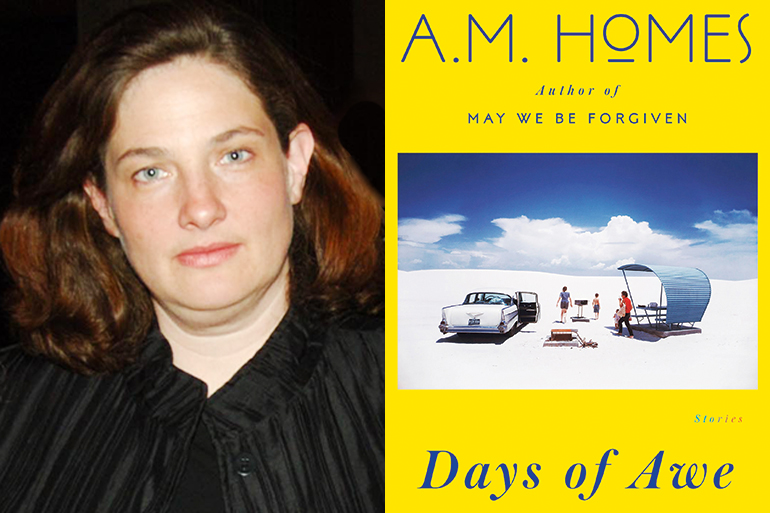Book Review: 'Days of Awe' by East Hamptonite A.M. Homes

East Hampton’s A.M. Homes, author of May We Be Forgiven, which won the Women’s Prize for Fiction in 2013, has written a new collection of enticing, humorous and compassionate stories. Days of Awe highlights what it is to be human in today’s world. Her characters’ flaws are fully displayed for readers, though it’s done with humor and less self-deprecation than one might expect.
In the books’ title story, there’s a line that seems to represent this collection as a whole: “It is not about the size of one’s sins or one sin being greater than another—but that we are all human and thus flawed, and only by recognizing flaws can we come to know ourselves.” in the story novelist attends a conference on the topic of genocide. Though she says she didn’t want to attend, it becomes clear that she gains something from experiencing other people’s pain. At the conference, she reconnects with an old friend, a war correspondent, and a romantic connection blooms. Through their short–lived relationship they rediscover themselves and gain an understanding of why they are both drawn to tragedy. The story is heartbreaking and refreshing, with many different perspectives on display. In the end it becomes a revelation of what we need as people—a sense of belonging.
In each of the stories, we find genuine connections between the characters. These connections are strong, and Homes finds a way to represent them subtly through dialogue. At the heart of the opening story, “Brother on Sunday,” is a dysfunctional relationship between two brothers. However, we don’t see this relationship in all of its dysfunctional glory until about halfway through. And still the end is something to be admired, as tensions overflow and pettiness wins. The beauty here is in how Homes establishes this relationship from the very beginning. The character Tom clearly resents his brother, though it isn’t clear why. It’s not until we see the brother Roger interacting with those around him that we understand the animosity.
In the stories “All Is Good Except for the Rain” and “Be Mine” the reader discovers the history of characters without any clumsy exposition. It’s a trick Homes is particularly good at. In “All Is Good Except for the Rain,” two friends have lunch and end up retelling a story to each other, one woman playing the part of herself, the other the part of her husband. They finish each other’s sentences and add details that the other didn’t think to say. Nothing is said here that isn’t needed, and there’s real brilliance in that. In “Be Mine,” the couple on display is arguing, though neither is saying anything real. In one instance they discuss a baby they never had, in another the positions they sleep in. But it ends in a cycle, with the two locking lips and their words ceasing.
Every story in this collection has something unique about it, but they all point to the same underlying theme: It’s difficult to be human, and relationships are complicated. Though Homes is not the first author to write about these things, the way she does it is her own—like each of her characters. Short stories aren’t often known for their humor, and while this is dark humor, it’s still humor that Homes incorporates into this story collection. To read this collection is to peer into the lives of ordinary people in quite complex situations. What you get from this collection is a feeling that you are not so alone.
Days of Awe by A.M. Homes is available at your local bookstore.



